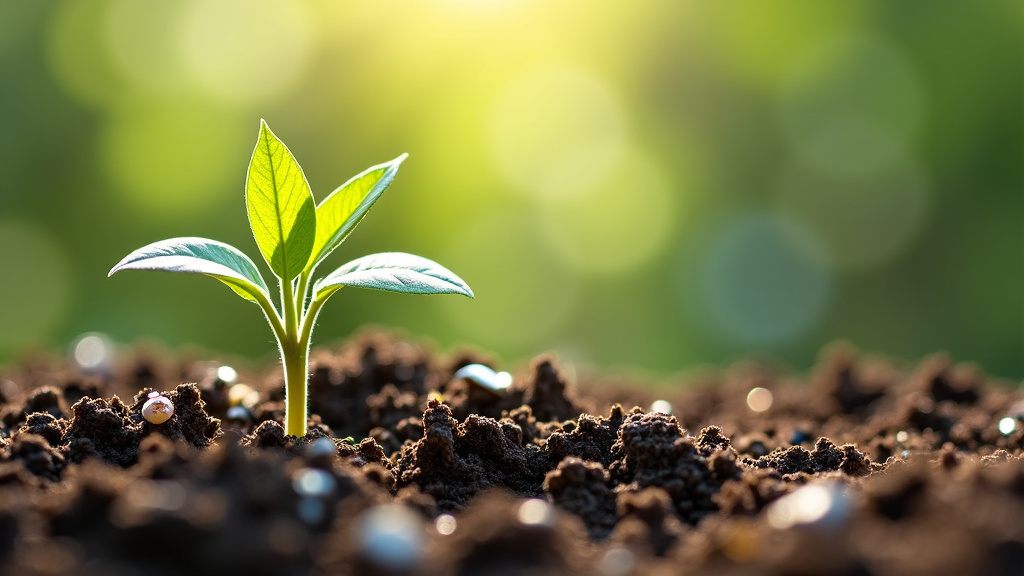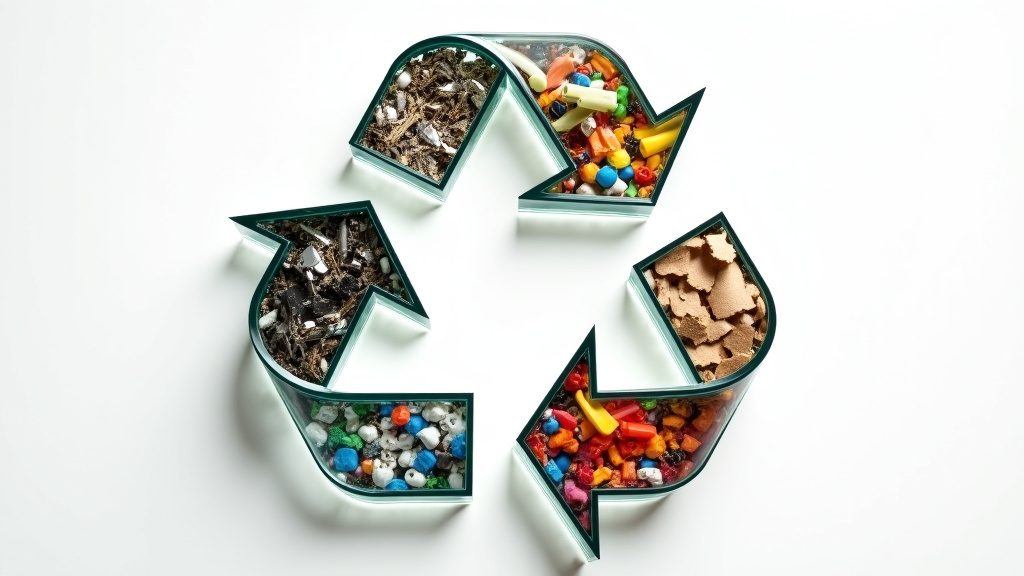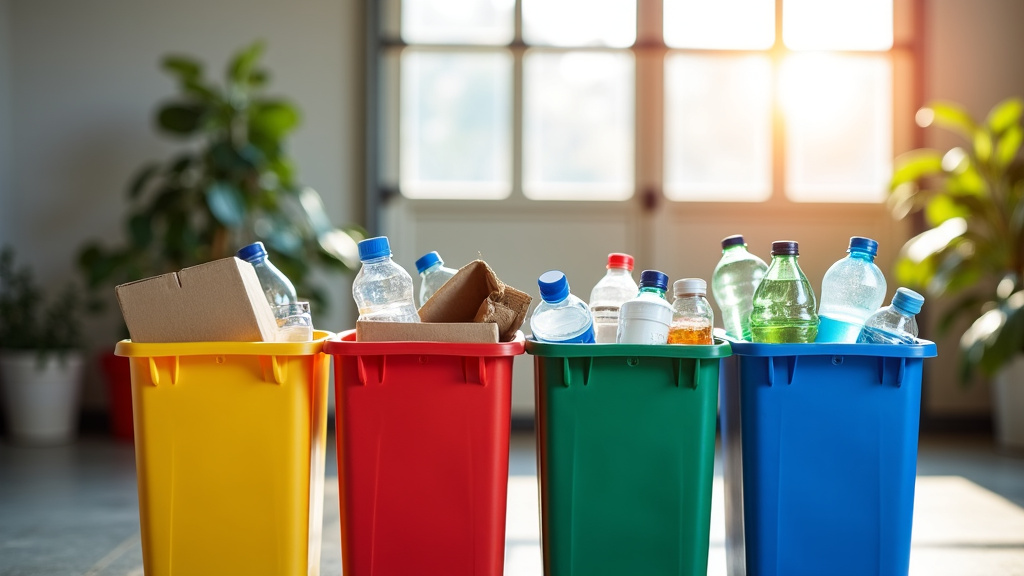5901 Botham Jean Blvd, Dallas, TX 75215
Making Recycling a Daily Habit: Steps to Begin
February 14, 2025Imagine if every household improved its waste management overnight—the environmental benefits would be massive. While change doesn’t happen instantly, it starts with one habit, one choice at a time.
Recycling isn’t just about sorting waste; it’s a simple yet powerful way to protect the environment. Companies like Okon Recycling are leading this effort, turning discarded materials into valuable resources while reducing reliance on raw material extraction. By adopting smarter recycling habits, you contribute to a more sustainable world—one small action at a time.
From conserving natural resources to minimizing pollution, every item you recycle makes a difference. Let’s break down practical ways to make recycling a seamless part of your routine. A cleaner, greener future starts with you.
Creative Ways to Incorporate Recycling Daily

Embracing sustainable habits doesn’t have to be a chore. By organizing your home and implementing creative strategies, you can seamlessly integrate recycling into your daily routine. Explore some innovative approaches to make recycling a natural part of your lifestyle.
Creating Home Recycling Zones
One effective way to encourage consistent recycling is by establishing dedicated zones throughout your home. These strategically placed areas serve as visual reminders and make the process more convenient. Consider setting up recycling stations in high-traffic areas like the kitchen, home office, and garage.
In the kitchen, designate separate bins for paper, plastic, and glass. Label each container clearly to avoid confusion and ensure proper sorting. For smaller spaces, try using stackable bins or under-sink organizers to maximize efficiency without sacrificing floor space.
In your home office, place a small recycling bin next to your desk for paper waste. This simple step can significantly reduce the amount of recyclable material that ends up in the trash. Remember to recycle ink cartridges and electronics responsibly as well.
| Bin Type | Features | Placement |
| Pull-out Bins | Hidden within drawers, multiple compartments | Under the sink or in a drawer next to the sink |
| Countertop Caddy | 4 Liter capacity, brushed stainless steel | On the countertop for easy access |
| Double Recycling Bin | Removable inner buckets, carry handles | Freestanding in the kitchen |
| Stackable Bins | Color-coded, front flap for easy use | Porch to kerbside, or under-sink |
Hosting Periodic Recycling Events
For items that are more challenging to recycle, consider organizing periodic events to address these materials. Host a neighborhood e-waste collection day where residents can bring old electronics for proper disposal. This ensures responsible recycling and fosters a sense of community around sustainability.
Another creative idea is to arrange a clothing swap with friends or neighbors, allowing participants to exchange gently used items, giving them a new life and reducing overall consumption. Any unclaimed clothing can be donated to local charities, further extending its usefulness.
Building Supportive Recycling Habits
Creating a recycling-friendly environment goes beyond just setting up bins. It involves cultivating habits that support sustainable living. Start by educating yourself and your family about local recycling guidelines. The EPA provides comprehensive resources on recycling basics that can help you get started.
Make a game out of recycling for children by creating a points system for properly sorted items. This educates them about sustainability while making the process fun. For adults, consider setting personal recycling goals and tracking your progress.
Another habit to develop is ‘precycling’—the practice of avoiding waste before it’s created. When shopping, opt for products with minimal packaging or those made from recycled materials. This proactive approach reduces the amount of waste that needs to be recycled.
Unexpected Uses for Common Items
Think creatively about reusing everyday items. Glass jars can be repurposed as storage containers for office supplies or as quirky vases for flowers. Old newspapers make excellent wrapping paper for gifts, adding a unique and eco-friendly touch.
Plastic bottles can become planters for herbs or small succulents. Simply cut the bottle in half, punch some drainage holes in the bottom, and you have a perfect container for your indoor garden. This not only recycles the bottle but also adds greenery to your living space.
By incorporating these creative recycling strategies into your daily life, you’ll find that sustainable living becomes second nature. Every small action counts towards creating a more environmentally friendly future. Start with one or two of these ideas and gradually expand your recycling efforts. Your planet will thank you!
Overcoming Challenges in Recycling Daily

Recycling can often feel like navigating a complex maze, especially with unclear guidelines and changing rules. However, addressing these challenges is crucial for effective waste management and environmental conservation. Here are practical strategies to overcome common recycling hurdles and make it a seamless part of your routine.
Understand Local Recycling Guidelines
A major obstacle to effective recycling is confusion about what can and cannot be recycled locally. Recycling rules vary widely between municipalities, so it’s essential to familiarize yourself with local guidelines. According to the EPA, the U.S. national recycling rate is only around 25%, partly due to this confusion.
Research your local recycling program’s website or contact them directly for clarification. Many offer downloadable guides or mobile apps to help you sort your waste correctly. Remember, what’s recyclable in one city might not be in another, so stay informed about your specific area’s rules.
Pro tip: Create a simple, visual guide for your home that outlines what can be recycled locally. Place it near your recycling bins for easy reference.
Establish a Consistent Recycling System at Home
Consistency is key to making recycling a habitual part of your daily life. Set up a user-friendly recycling station in your home with clearly labeled bins for different materials, such as paper, plastic, glass, and metal.
Consider placing smaller recycling bins in high-traffic areas of your home, like the bathroom or home office. This makes it easier to recycle items like toilet paper rolls or junk mail immediately, rather than tossing them in the trash for convenience.
Remember to rinse containers before recycling them to avoid contamination. A quick rinse is usually sufficient—you don’t need to waste water by thoroughly washing them.
Reduce Contamination Through Proper Sorting
Contamination is a significant issue in recycling. When non-recyclable items end up in recycling bins, they can contaminate entire batches, leading to more waste in landfills. Focus on proper sorting and educate everyone in your household about what goes where.
Common contaminants to watch out for include:
- Food-soiled paper or cardboard
- Plastic bags and film (these often require special recycling)
- Styrofoam
- Electronics and batteries (these usually need special disposal)
When in doubt, it’s better to throw an item in the trash than risk contaminating your recycling bin. The mantra “when in doubt, throw it out” can help prevent well-intentioned mistakes.
Embrace the Reduce and Reuse Mindset
While recycling is important, it’s even more effective to reduce waste at the source. Embrace a mindset of reducing and reusing before you even get to the recycling stage. This could mean opting for reusable shopping bags, water bottles, and food containers.
When shopping, look for products with minimal packaging or packaging made from easily recyclable materials. Choose items made from recycled content to support the circular economy. By making conscious choices, you’re not just recycling—you’re actively reducing the amount of waste that needs to be recycled in the first place.
| Contaminant | Required Action |
| Food-soiled paper or cardboard | Dispose in trash |
| Plastic bags and film | Special recycling required |
| Styrofoam | Dispose in trash |
| Electronics and batteries | Special disposal required |
Stay Informed and Spread Awareness
Recycling guidelines and technologies are constantly evolving. Stay informed about changes in your local recycling program and new developments in waste management. Follow reputable environmental organizations on social media or sign up for newsletters from your local waste management authority.
Share your knowledge with friends, family, and colleagues. By spreading awareness, you’re contributing to a more informed community that can collectively make a significant impact on waste reduction and recycling efficiency.
Remember, overcoming recycling challenges is a continuous process, but with education, consistency, and a commitment to sustainability, it can become an effortless part of your daily life. Every small action counts towards a cleaner, greener future.
Sustaining Recycling Habits for Future Benefits

Recycling isn’t just about reducing waste—it’s about shaping a more sustainable future. Every item we recycle helps conserve natural resources, cut landfill waste, and lower greenhouse gas emissions. These small actions create a ripple effect, benefiting our communities and the planet for generations to come.
However, meaningful change requires more than just individual effort. It takes collaboration between communities, businesses, and environmental leaders. Okon Recycling is at the forefront of this movement, turning complex waste into valuable resources through innovative recycling solutions. Their commitment to sustainability demonstrates that waste isn’t just something to discard—it’s an opportunity to create something new.
The path to a greener future starts with simple, consistent habits. Whether it’s improving your household recycling, supporting businesses that prioritize sustainability, or advocating for better waste management policies, every effort counts.
So, how can you make recycling an even bigger part of your daily life? Let’s take the next step together. Contact Okon Recycling at 214-736-9509 to learn more about effective recycling strategies and how you can contribute to a cleaner, more sustainable world.
